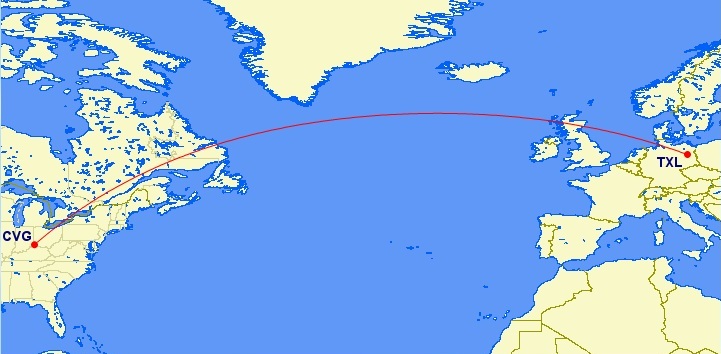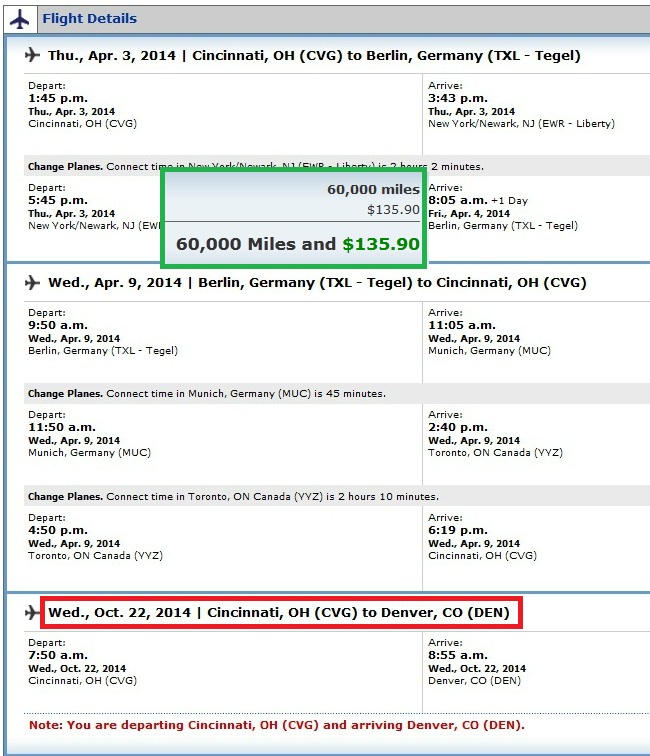Today’s post is stolen borrowed inspired by a post on the excellent travel blog Milenomics about what he calls a “Demand Schedule”
The basic idea of a Demand Schedule is that you want to give some thought to where (and how) you want to travel, and make sure to accrue your miles in such a way that supports that.
Oftentimes when people start out with the miles and points game, they just sign up for any and all credit cards that look appealing, without any real plan. I know that’s what I did. I signed up for 6 cards, and other than a vague plan of concentrating on getting Hilton points, I didn’t really have any rhyme or reason.
What’s the big deal about that, you might ask? Well there are 2 reasons for that
1. If you’re not using miles, they do you no good
Like we covered back in “The Basics“, the name of the game is to get miles cheaper than it takes to spend them. But while it is generally possible to get miles fairly cheap, for the most part they’re not free (especially once you count the time it takes to get them). With miles, as with life in general, TANSTAAFL.
So say you spend your time, money and spending power earning United miles but then find you want to go to a destination that is best served by American Airlines. Guess how useful your United miles are? (Answer: Not very). There’s even a slightly more pernicious example – if you have say 30,000 Hilton HHonors points along with 30,000 Marriott points. If you want to stay for 2 nights at a Hilton Category 4 hotel (20,000 points a night), you’ll be tempted to pay for your missing points, when if you had planned things a little better, you could have gotten both nights completely for free.
2. ‘Free’ one-way airline tickets
Wait – didn’t I just say there ain’t no such thing as a free lunch?!!? 😀
Don’t worry – I put it in “air-quotes” so it’s okay. What it means is that on many airlines when you buy a ticket, you are allowed to have a “stopover” (which is basically any city where you stop for a period of time). Different airlines have different rules for what counts as a stopover, but let’s take a simple example on United, which has one of the more liberal policies on stopovers.
Berlin has been on my mind since a reader emailed asking for help in planning a summer trip there. I am still working on helping her out, but in the meantime, let’s talk about a hypothetical trip from CVG-TXL
On United, a peak one-way ticket from North America to Europe costs 30,000 MileagePlus miles, so going from CVG-TXL-CVG costs (wait for it…. wait for it…..) – 60,000 miles.
Now, let’s say I want to go to Berlin in the spring, but then later I want to visit some family in Denver. A one-way ticket inside North America costs 12,500 miles, so CVG-TXL-CVG-DEN costs 72,500 miles, right? WRONG! It still only costs 60,000!!!
Reason for this is that United allows a stopover (almost) anywhere. So this is how it prices out
Ticket 1: CVG-TXL: one-way North America to Europe, 30,000 miles
Ticket 2: TXL-CVG (stopover)-DEN: one way Europe to North America, 30,000 miles
So, for the same number of miles as a roundtrip ticket to Berlin, we get a roundtrip ticket to Berlin AND a ‘free’ one-way ticket to Denver. This is actually a fairly simple example as there are even more complex things that you can do to squeeze the most value out of your miles.
How do you get back from Denver? Well, there are a few options – one would be to make your flight back DEN-CVG be the ‘free’ one-way part of a 2nd award ticket (allowing you to get 3 trips for the price of 2), and another might be to use miles on another airline such as Frontier or Southwest.
But do you see why having a demand schedule is important? If you didn’t KNOW you were going to Denver later in the year, then you can’t include this as part of your award. Of course, plans can and do change, but having a basic idea (as well as knowing which plans are flexible and which are not) can help maximize your miles.
In tomorrow’s post,we’ll examine demand schedules a bit more, and I’ll share my demand schedule as well as share how not knowing about this caused me to waste an award ticket.
Points With a Crew has partnered with CardRatings for our coverage of credit card products. Points With a Crew and CardRatings may receive a commission from card issuers. Responses are not provided or commissioned by the bank advertiser. Some or all of the card offers that appear on the website are from advertisers and that compensation may impact on how and where card products appear on the site. Any opinions expressed in this post are my own, and have not been reviewed, approved, or endorsed by my advertising partners and I do not include all card companies, or all available card offers. Terms apply to American Express benefits and offers and other offers and benefits listed on this page. Other links on this page may also pay me a commission - as always, thanks for your support if you use them
User Generated Content Disclosure: Points With a Crew encourages constructive discussions, comments, and questions. Responses are not provided by or commissioned by any bank advertisers. These responses have not been reviewed, approved, or endorsed by the bank advertiser. It is not the responsibility of the bank advertiser to respond to comments.




 Dan Miller travels with his wife and 6 (SIX!) children. He loves to help families travel for free / cheap, especially larger families. If you are looking for help, drop him an email at
Dan Miller travels with his wife and 6 (SIX!) children. He loves to help families travel for free / cheap, especially larger families. If you are looking for help, drop him an email at 
Dan,
Glad to see the ideas of Milenomics are starting to trickle out into the blogosphere. Demand Schedules are important, for the reasons you’ve outlined as well as the ones I’ve written about on milenomics. For a good second post I suggest your readers take a look at http://first2board.com/milenomics/using-demand-schedules-target-earnings/
Of course what good is knowing your demand without knowing how to stock up on Miles? Supply Side Milenomics is important as well–earning your miles as cheaply as possible, and stopping when your supply meets your demand. The rest can then go to cashback cards.
Best of Luck with the blog!
Sam
Thanks Sam for the followup link – though I definitely recommend your whole blog!
Your image includes something from a GUM-AKL flight, inadvertent?
I actually have found that the best way to get comments is to make errors (especially grammatical mistakes!) and have people point them out 😀
Okay not really (though I do think that’s true) – thanks for pointing that out – I have removed the extraneous image.